Tu n'as plus assez de jetons pour télécharger ce document !

Pour gagner des jetons
- Envoie-nous un document ! +20Envoyer
- Poste un commentaire de qualité ! +5
Plan :
Tenses 1 Present simple (I do) and present continuous (I am doing) (1) 2 Present simple (I do) and present continuous (I am doing) (2) 3 Present perfect (I have done) and past simple (I did) (1) 4 Present perfect (I have done) and past simple (I did) (2) 5 Present perfect (I have done) and past simple (I did) (3): adverbs used with these tenses 6 Past continuous (I was doing) and past simple (I did) 7 Present perfect continuous (I have been doing) 8 Present perfect continuous (I have been doing) and present perfect (I have done) 9 Past perfect (I had done) and past simple (I did) 10 Past perfect continuous (I had been doing) and past perfect (I had done) The future 11 Will and going to; shall 12 Present continuous (I am doing) for the future and going to 13 Present simple (I do) for the future 14 Future continuous (will be doing) 15 Be to + infinitive (I am to do), future perfect (I will have done), and future perfect continuous (I will have been doing) 16 The future seen from the past (was going to, etc.) Modals 17 Should and ought to 18 Will and would: willingness, likelihood and certainty 19 Will and would: habits; used to 20 May, might, can and could: possibility (1) 21 May, might, can and could: possibility (2) 22 Can, could, and be able to: ability 23 Must and have (got) to 24 Need(n't), don't have to and mustn't 25 Permission, offers, etc. Be, have, do, make, etc. 26 Linking verbs: be, appear, seem; become, get, etc. 27 Have and have got; have and take 28 Do and make Passives 29 Forming passive sentences 30 Using passives 31 Verb + -ing or to-infinitive: passive forms 32 Reporting with passive verbs Questions 33 Forming questions; reporting questions 34 Asking and answering negative questions 35 Wh-questions with how, what, which and who Verbs: infinitives, -ing forms, etc. 36 Verbs with and without objects 37 Verb + to-infinitive or bare infinitive 38 Verb + to-infinitive or -ing? 39 Verb + -ing 40 Verb + wh-clause 41 Have/get something done; want something done, etc. 42 Verb + two objects Reporting 43 Reporting people's words and thoughts 44 Reporting statements (1): that-clauses 45 Reporting statements (2): verb tense in that-clauses 46 Reporting statements (3): verb tense in the reporting clause; say and tell; etc. 47 Reporting offers, suggestions, orders, intentions, etc. 48 Should in that-clauses 49 Modal verbs in reporting Nouns and compounds 50 Countable and uncountable nouns 51 Agreement between subject and verb (1) 52 Agreement between subject and verb (2) 53 The possessive form of nouns (Jane's mother) 54 Compound nouns (1) 55 Compound nouns (2) Articles 56 A/an and one 57 The and a/an (1):'the only one' 58 The and a/an (2): 'things already known', etc. 59 Some and zero article with plural and uncountable nouns 60 The, zero article and a/an: 'things in general' 61 People and places 62 Holidays, times of the day, meals, etc. Determiners and quantifiers 63 Some and any; something, somebody, etc. 64 Much (of), many (of), a lot of, lots (of), etc. 65 All (of), the whole (of), both (of) 66 Each (of), every, and all 67 No, none (of), and not any 68 Few, a few (of), little, a little (of), etc. 69 Quantifiers with and without 'of (some/some of; any/any of; etc.) Relative clauses and other types of clause 70 Relative clauses (1) (The girl who I was talking about.) 71 Relative clauses (2) (Tom, who is only six, can speak three languages.) 72 Relative clauses (3): other relative pronouns 73 Relative clauses (4): prepositions in relative clauses 74 Participle clauses (-ing, -ed and being + -ed) 75 Participle clauses with adverbial meaning IV Pronouns, substitution and leaving out words 76 Reflexive pronouns: herself, himself, themselves, etc. 77 One and ones (There's my car - the green one.) 78 So (I think so; so I hear) 79 Do so; such 80 Leaving out words after auxiliary verbs 81 Leaving out to-infinitives (She didn't want to (go).) Adjectives 82 Adjectives: position (1) 83 Gradable and ungradable adjectives; position (2) 84 Adjectives and adverbs 85 Participle adjectives (the losing ticket; the selected winners) 86 Prepositions after adjectives: afraid of/for, etc. 87 Adjectives + that-clause or to-infinitive 88 Comparison with adjectives (1): -er/more...; enough, sufficiently, too; etc. 89 Comparison with adjectives (2): as...as; so...as to; etc. Adverbs and conjunctions 90 Position of adverbs 91 Adverbs of place, indefinite frequency, and time 92 Degree adverbs: very, too, extremely, quite, etc. 93 Comment adverbs; viewpoint adverbs; focus adverbs 94 Adverbial clauses of time (1): verb tense; before and until; hardly, etc. 95 Adverbial clauses of time (2): as, when and while 96 Giving reasons: as, because, because of, etc.; for and with 97 Purposes and results: in order to, so as to, etc. 98 Contrasts: although and though; even though/if; in spite of and despite 99 Conditional sentences (1): verb tenses 100 Conditional sentences (2) 101 If...not and unless; if and whether, etc. 102 After waiting..., before leaving..., besides owning..., etc. 103 Connecting ideas between and within sentences Prepositions 104 At, in and on: prepositions of place 105 Across, along, over and through; above, over, below and under 106 Between, among; by, beside, etc. 107 At, in and on: prepositions of time 108 During, for, in, over, and throughout; by and until 109 Except (for), besides, apart from and but for 110 About and on; by and with 111 Prepositions after verbs (1) 112 Prepositions after verbs (2) 113 Prepositions after verbs (3) 114 Two- and three-word verbs: word order Organising information 115 There is, there was, etc. 116 It... (1) 117 It... (2) 118 Focusing: it-clauses and what-clauses 119 Inversion (1) 120 Inversion (2) Appendix 1 Passive verb forms 242 Appendix 2 Quoting what people think or what they have said 243 Appendix 3 Irregular verbs 244 Appendix 4 Typical errors and corrections 246 Glossary 265 Additional exercises 269 Study guide 280 Key to exercises 289 Key to Additional exercises 325 Key to Study guide 329 Index 330 VI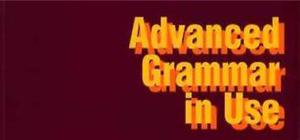

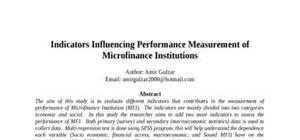
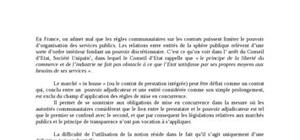

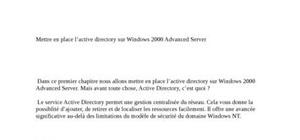
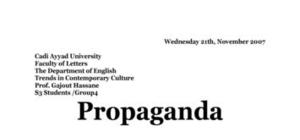
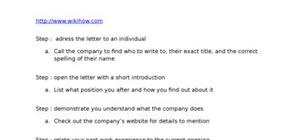
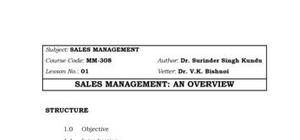
c'est un support qui vous renseigne sur les techniques de management commercial, la force de vente et les techniques de vente ...
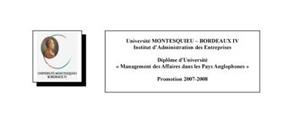

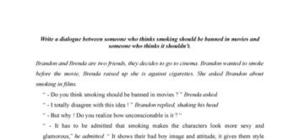

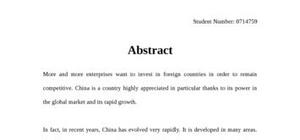
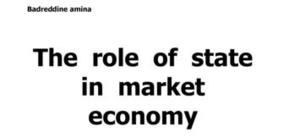
interesting
good
very good
thanks
cool
cool
congratulations!
bien
Très bon document merci de l'avoir partagé
Très bon document merci de l'avoir partagé
Très bon document merci de l'avoir partagé
thanks it's a great book .
cool and many thanks
interesting
cool
merci
merci
thanks
merci
je crois que ce document m'aidera beaucoup
Idéal pour comprendre la grammaire en Anglais ! Merci beaucoup !
cool
Crée un compte gratuit pour télécharger ce document
Je m'inscrisOUJ'ai déjà un compte
Je me connecte
good